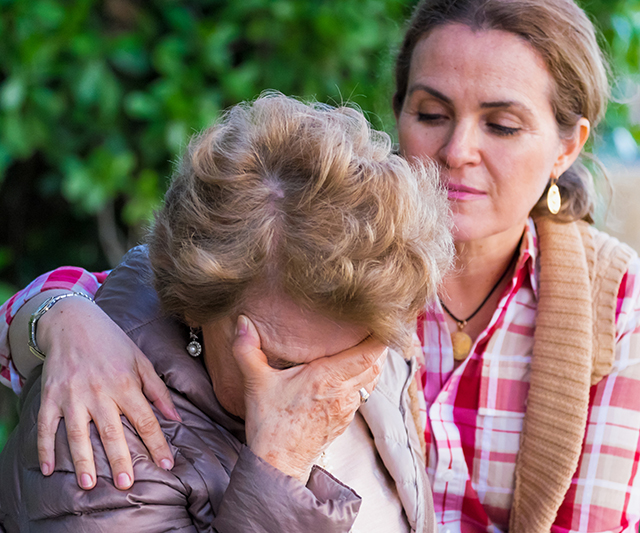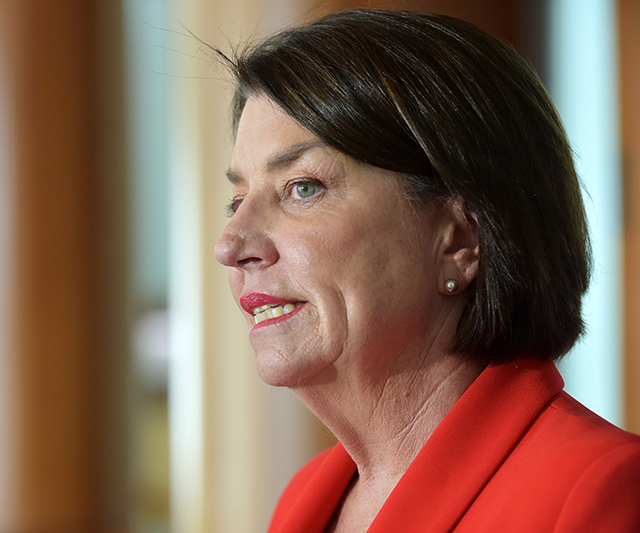Fact: financial abuse can happen to anyone at any time, but here in Australia, the elderly are most at risk.
Just as ask Jo, 59, who witnessed the devastating impact of elderly financial abuse first-hand.
“I’ve known my friend Bruce [90] my whole life,” Jo tells us. “When I couldn’t get a hold of Bruce for two months, I knew something was off.”
Fearing the worst, Jo visited Bruce at his property in Dural, NSW, to discover that not only had he fallen ill, but he had been coerced by another friend into signing paperwork that gave his estate away.
Sadly, Bruce isn’t the only person to fall victim to this crime; according to the Australian Banking Association (ABA), one in 10 older Australians are victims of financial abuse each year.
“Elder financial abuse is tragically a heartbreaking reality for too many Australian families,” says former Queensland premier, now CEO of the ABA, Anna Bligh.
“It is clear that there are some people in the community who feel that they are entitled to exploit an older person financially because they are impatient to get what they believe is their own inheritance.”
This is why it’s imperative that you arm yourself with the knowledge to protect those you love from elderly financial abuse. Because if they can’t see the signs, you can.
Why are the elderly most susceptible to financial abuse?
Financial abuse in Australia is a far-reaching social issue and, as stated by the Australian Institute of Family Studies, is the most common form of abuse experienced by elderly people. Shockingly, this same research suggests that this abuse typically comes in the form of intra-familial and intergenerational relationships.
This is because some older people, particularly those who have been left in a financially good position thanks to increased house prices and reasonable superannuation balances, fall prey to family members who feel entitled to their money.
What exactly is elderly financial abuse?
Often, elderly people often don’t recognise they are being taken advantage of, with their financial assets being used without their permission.
Sadly, not only can elderly financial abuse happen at any time, but it can also occur in myriad forms. This includes money, credit cards or bank accounts being used without consent, signatures forged, loans taken out in their name that are never paid back, as well as tricks or threats to change a will, power of attorney or other important legal documents.
Common signs of elderly financial abuse
When it comes to spotting the signs of elderly financial abuse, the Uniting Care Elder Abuse Prevention Unit suggests looking out for:
Loss of jewellery or personal property
Missing belongings
Inability to pay bills when money is entrusted to a third party
Inability to find the money for basics such as food, clothing, transport costs and bills
Large withdrawals or big changes in banking habits or activities
Property transfers when the person is no longer able to manage their own financial affairs
Fear, stress and anxiety
What you can do to protect your loved one from elderly financial abuse:
If you suspect elderly financial abuse, call 1800 ELDERHelp (1800 353 374), a free number that puts you in touch with local services (please note: operating hours and services vary across jurisdictions) or 1800 RESPECT (1800 737 732), a free, confidential counselling service available 24 hours a day, seven days a week, for assistance.
Also, ensure that you and your family members have a trusted Power of Attorney to protect your loved one’s assets in the future.
Support our cause to raise awareness around elderly financial abuse by signing our peitition.
Brought to you by the Australian Banking Association


